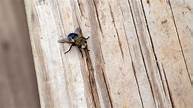Do Pet Mice Smell?
Mice are popular pets due to their small size, low maintenance needs, and playful nature. However, potential owners may wonder if mice have a strong odor that could be unpleasant or bothersome. In this article, we'll explore whether pet mice smell and provide tips for managing any potential odor issues.

Do Pet Mice Smell?
In general, pet mice do have a smell, but it's important to note that the intensity of the odor can vary depending on several factors, including the type of mouse, its diet, and its cage hygiene.
Pet mice have a natural musky scent that is produced by their urine and droppings. This odor is usually mild and not overwhelming, but it can become more noticeable if the cage is not cleaned regularly. Mice also have scent glands on their belly and feet that can produce a stronger smell if they are stressed or frightened.
Factors Affecting Odor
Several factors can influence the intensity of the odor produced by pet mice:
- Type of Mouse: Different species of mice have varying natural scents. For example, fancy mice, which are commonly kept as pets, tend to have a milder odor compared to other types of mice.
- Diet: The type of food fed to mice can impact their odor. Diets high in protein can lead to stronger-smelling urine and droppings. A balanced diet with a variety of fresh vegetables and fruits can help reduce odor.
- Cage Hygiene: Regular cleaning of the cage is crucial for odor control. A dirty cage with accumulated urine and feces will produce a stronger and more unpleasant odor. It's recommended to clean the cage at least once a week and replace the bedding completely.
- Stress and Fear: Mice that are stressed or frightened may produce a stronger scent due to the activation of their scent glands. Providing a comfortable and stress-free environment with adequate space, hiding places, and toys can help minimize stress and reduce odor.
Tips for Managing Odor
By following these tips, you can help manage and reduce the odor produced by your pet mice:
- Choose the Right Type of Bedding: Opt for bedding materials that are absorbent and have odor-controlling properties. Avoid cedar and pine shavings, as they can release strong scents that can irritate mice's respiratory systems.
- Clean the Cage Regularly: Cleaning the cage at least once a week is essential for odor control. Remove soiled bedding and replace it with fresh material. Spot-clean the cage daily by removing any droppings or spilled food.
- Provide a Balanced Diet: Feed your mice a healthy diet that is low in protein and high in fresh vegetables and fruits. Avoid feeding mice fatty or sugary foods, as these can contribute to odor.
- Provide Adequate Space: Mice need enough space to move around and explore. A cramped cage can lead to stress and increased odor production. Choose a cage that is suitable for the number of mice you have.
- Reduce Stress: Create a calm and stress-free environment for your mice. Provide them with hiding places, toys, and opportunities for exercise. Avoid sudden movements or loud noises that can startle or frighten them.
Overall, pet mice do have a natural scent, but it can be managed and minimized with proper care and maintenance. By following these tips, you can help ensure that your pet mice are healthy, comfortable, and have a pleasant odor that is not overpowering or unpleasant.
Declaration: All article resources on this website, unless otherwise specified or labeled, are collected from online resources. If the content on this website infringes on the legitimate rights and interests of the original author, you can contact this website to delete it.





